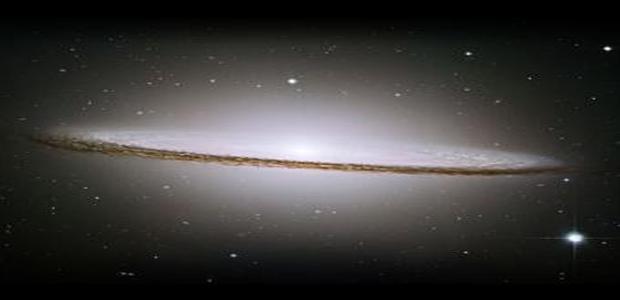In our previous post, we have seen how scientists like Albert Einstein and Edwin Hubble have contributed their expertise in understanding the Big Bang theory and what may have existed before that. For many years prior to Hubble’s work, astronomers had tried to illuminate the controversy by photographing the light spectra of nebulae.
The leading expert at that time was Vesto Slipher, a dedicated assistant of Percival Lowell, the astronomer who had founded an observatory at Flagstaff, Arizona, to search for the canals of Mars. Lowell, believing the nebulae were solar systems in the process of forming, set Slipher the job of confirming this spectroscopically. One of the useful things a spectrum will do, thanks to the Doppler Effect, is to reveal information about the motion of the source.
In 1912, Slipher determined that M31 is moving towards the Earth at three hundred kilometers per second. By 1917, he had obtained spectroscopic velocity data on twenty-five nebulae having distinctive spiral shapes (like our Milky Way). All but four displayed red shifts indicating that, unlike Andromeda, they are rushing away from us.
The preponderant outward movement suggested that some sort of systematic effect was at work, but Slipher had no means to determine the distances of his nebulae to demonstrate this. Furthermore, the prevailing belief concerning the organization of the universe was that it formed a static system, with the Milky Way located at its center and the nebulae subordinated to it.
With Hubble’s discovery, however, the mood began to change: it was now possible to measure the distances to the galaxies. Hubble himself set about obtaining distance and red-shift data for a few dozen galaxies. It gradually became clear that the more distant galaxies systematically displayed larger red shifts, indicating that they are moving away from us faster. By 1929, Hubble was able to announce one of the most momentous scientific discoveries of all time: the universe is expanding.
Hubble based his sensational claim on the red-shift data, indicating that the speed with which a galaxy recedes from us is directly proportional to its distance. This means galaxies twice as far away are moving at twice the speed. Hubble’s “law” is only statistically correct, as individual galaxies can have quite large random velocities around this overall “Hubble flow” (recall that Andromeda is actually moving towards us).
But suitably averaged over many galaxies there is an unmistakable mathematical relationship between speed and distance. The particular proportionality law discovered by Hubble can be interpreted to mean that the galaxies are moving away from each other as well as away from the Milky Way. In other words, the entire assemblage of galaxies is dispersing.
This is what is meant by saying the universe is expanding. Since Hubble’s original observations, it has been found that galaxies tend to cluster in groups which do not expand, and may even contract. Nevertheless, on a scale of clusters of galaxies and larger, the universe is definitely expanding. In addition, the pattern of expansion is highly uniform: on average, it is the same in all directions. It is this uniformity that is reflected in the smoothness of the cosmic background heat radiation.
Clearly, if the universe is growing bigger, it must have been smaller in the past. We can imagine running the great cosmic movie backwards until all the galaxies are squashed together. This compressed state corresponds to the time of the big bang, and in a certain sense the expansion of the universe can be considered as a vestige of that initial explosion.
Today it is normal for cosmologists to claim that the universe began with the big bang. This weighty conclusion follows if you trace the expansion back in time to some idealized point of origin at which all the matter of the universe is concentrated in one place. Such a state of infinite density represents an infinite gravitational field and infinite space-time curvature —i.e., a singularity. The big-bang singularity is similar to the situation at the center of a black hole, but lying in the past rather than the future. As it is not possible to extend space and time through such a singularity, it follows that the big bang must be the origin of time itself.
People, especially journalists who get angry about scientists explaining everything, often ask: What happened before the big bang? If this theory is correct, the answer is simple: nothing. If time itself began with the big bang, there was no “before” for anything to happen in.
Although the concept of time being abruptly “switched on” at some singular first event is a hard one to grasp, it is by no means new. Already in the fifth century, Augustine proclaimed that: “The world was made, not in time, but simultaneously with time.” Keen to counter jibes about what God was doing before he made the universe, Augustine placed God outside of time altogether, making him the creator of time itself. The idea of time coming into being with the universe therefore fits very naturally into Christian theology. Recent ideas in quantum physics have changed our picture of the origin of time somewhat, but the essential conclusion remains the same: time did not exist before the big bang.
We can conclude that we are still trying to understand the basic crux of the creation of the universe as a whole and what our role in it is. Though minuscule in nature it has to be realized that we do have a certain contribution to our own planet which is a part of this giant universe. Only time will put more light on the fact if there was really anything before the big bang. Till then we have a definitive role to play on procuring our planet for our future generations who will surely find more answers about the universe.
For more detailed analysis on this concept check the book About Time by Paul Davies.
-end-


































